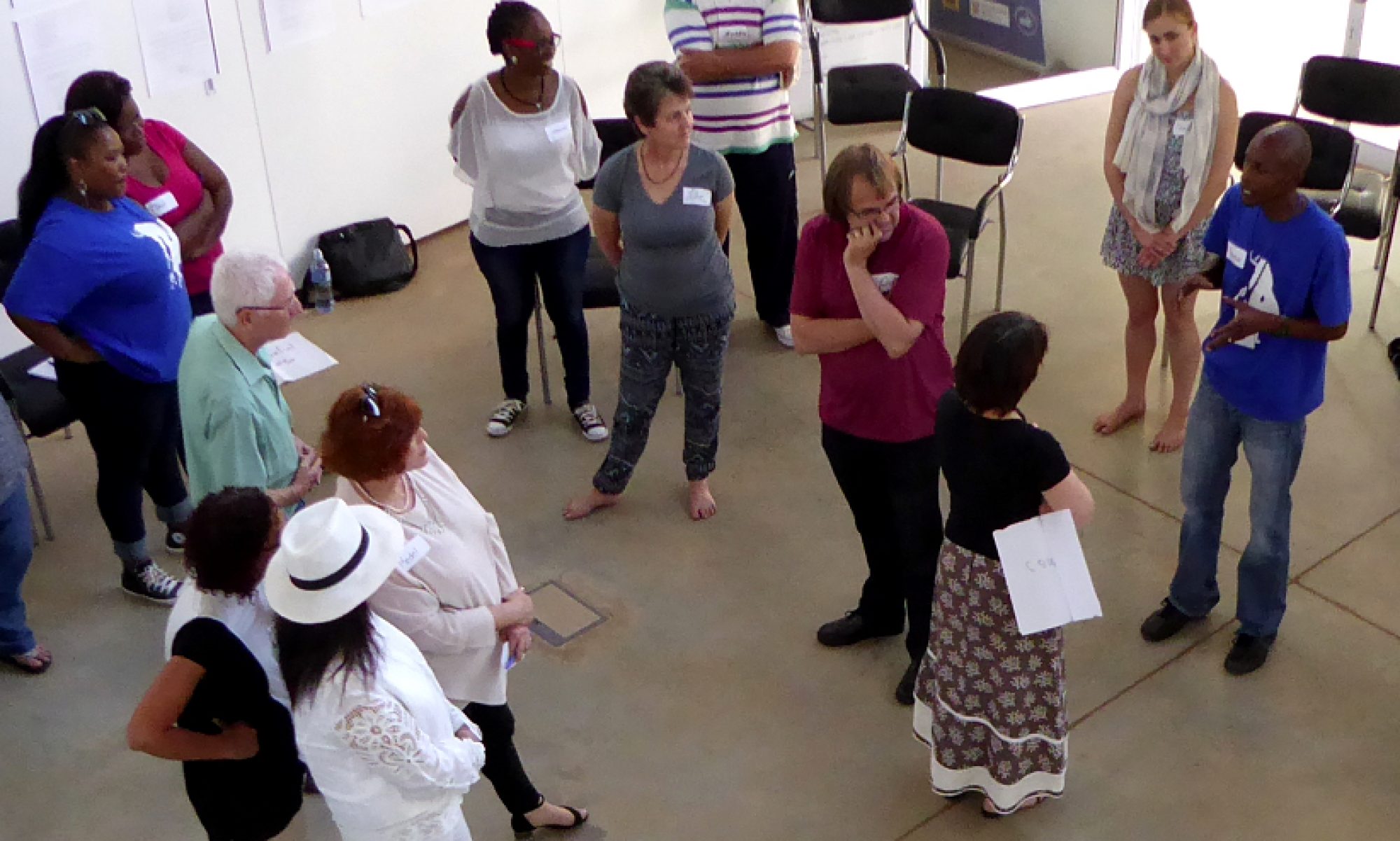I am letting go of Playing Mantis
From 2009, Playing Mantis was the frame within which I was doing my work in the world. The work is not changing, but the frame must. This muse-letter explains to you how the work will continue and where you can continue to get everything that Playing Mantis and I have offered.
Where am I going?
I have been offered the position of Head of Department at Drama for Life, Wits University. This is a full-time engagement, and I cannot do it justice of I have a fling with Playing Mantis on the side. Drama for Life is based at the Wits University School of Arts, and we work with the applied arts and arts therapies in a postgraduate academic programme, as well as research and community engagement projects for the purpose of social transformation and healing.
Why Platform 9 and Three-Quarters?
This is a reference to the platform from which the train to Hogwarts departs in the Harry Potter universe. To get to this platform, you must run into a brick pillar with conviction, trusting that it will open up for you and let you through. Rushing through the brick wall in this way, you come to a magical in-between place: the platform from which the train departs, which will take you to a school where you will learn to do magic, to access your individual genius and test your commitment to seeing the world in a way ordinary people (muggles) don’t. It is the train to a new world where nothing is the way it was before. To get there you must overcome your fear and have the conviction to run through a brick wall. That is what this change of roles feels like for me.
How will the work of Playing Mantis continue?
-
Organisation development through applied improvisation, performance and narrative strategy
If you have been an associate or client that has experienced our organisational work and loved it, you can now get the same kind of work from Les Nkosi and Lurinda Maree. Lurinda will be working with Les in his business (LNH – Les Nkosi Holdings) to offer you the same quality work with the same values, alongside all the other wonderful work they already do around organisational communication, culture change, diversity work and unconscious bias. Les is an applied performance practitioner like me and has worked with me in my business for the past three years. I have great respect for his work ethic and commitment to change for good. Lurinda is an industrial psychologist who has freelanced with me in the past and has extensive experience in change navigation work in various industries. She will be working with Les now as a supporting act to make the applied performance work happen.To get Les and Lurinda’s information and be on the mailing list for what they do, click here.
-
SNE (Strategic Narrative Embodiment) and applied improvisation training and coaching
Perhaps you have done the SNE training or wanted to do it after getting a taste of it at a conference or somewhere else. The course is still a WIP (work in progress) to ultimately become a certified Wits short course that can be attended / completed online. The work to perfect this training is still continuing under Tshego Khutsoane and Alison Gitelson. Both of them have been working with me for a long time and know the work intimately. They will shape the SNE training into the product that we know it can be and make it available to you all. Sometime in 2020 we will run a free trial with some of you, so keep your eyes open for the invitation.They will also continue with the practise sessions where you can ‘catch flying pigs’ i.e. experience and practise the processes.To stay on the SNE mailing list, click here.
-
My thinking and writing work around using story, embodiment and performance frames for moving us towards each other
I will continue to write a muse-letter every three months, where I will share stories, philosophies, frameworks and models related to using applied performance work in leadership, organisations and engagements with the purpose of bringing change for good. I may place an advert or invitation to SNE or LNH’s work from time to time, but the letter will focus mostly on my thinking and feeling around the redemptive work we have to do in the world and how story and performance can help that process. The muse-letters will be my letters home from my own “Hog Wits”.
To stay connected to these ideas and to my musings, click here. -
Performance coaching (speaker coaching, leadership coaching and business coaching all wrapped into one)
I have a little bit of time available for individual performance coaching work. If you want this individual coaching, or just want to get more information, you can connect with me directly with the understanding that my capacity in this regard is limited.
My email: petro@petrojansevanvuuren.com
Thank you for the role each of you has played in my journey to this point. – I would love to continue the relationship with you in one of the ways mentioned above and look forward to seeing your familiar faces when we connect again.
If we don’t, I wish you well on your own platforms and running through your own brick walls.
Petro Janse van Vuuren







